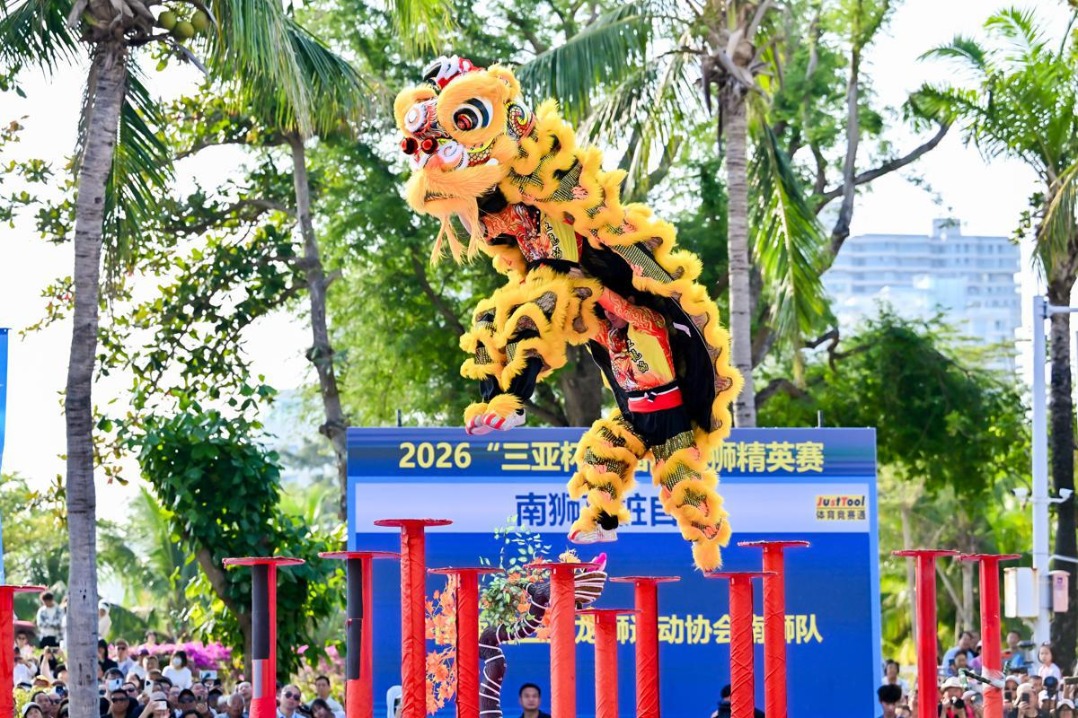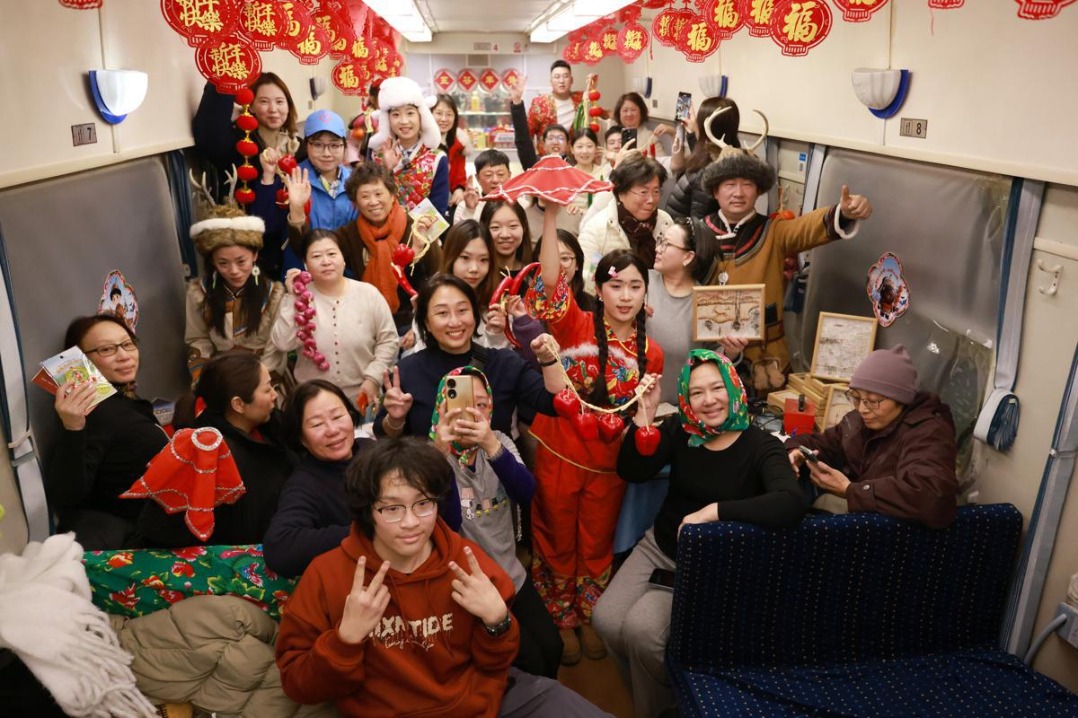Displaced residents find warmth, shelter at Beijing airport

Wei Jianguo woke up surrounded by a sea of travelers, like he does most days. His face was flushed red from heavy drinking the night before, and he had no idea what time of day it was.
He slowly got out of a bed, which he made from a worn-out blanket and black down jacket, and ignored the questioning looks from the people seated around him at Beijing Capital International Airport.
Wei, who is in his late 50s, has lived on and off at the airport's Terminal 2 for almost 10 years. Except for the occasional clear-out by security workers or police, his life is pretty routine.
Every morning he visits the nearest morning market to buy six steamed pork buns and a bowl of porridge for breakfast, some food for lunch, and a bottle of baijiu - the Chinese white spirit - to kill another day at one of the world's busiest transport hubs.
"I can't go back home because I have no freedom there," he said, referring to the house where his wife lives with her parents in Wangjing, an area about 20 kilometers from the airport.
"My family told me if I wanted to stay, I had to quit smoking and drinking. If I couldn't do that, I had to give them all my monthly government allowance of 1,000 yuan ($150). But then how would I buy my cigarettes and alcohol?"
After 20 years working at an internal combustion engine factory, Wei was laid off in his 40s. He said he had some temporary jobs, but was fired for being "too old". At the point, he decided to give up looking for work.
After falling out with his family, he began sleeping at railway stations and at the airport. He settled at Terminal 2 as "there's nowhere warmer than here", he said.
He is not the only one who calls the airport home. A senior sanitation worker who gave only his nickname, "Monitor Zhao", said about five or six people are living like Wei. The youngest, who has been around for at least a year, is "notorious" for playing Chinese opera too loud on his portable radio, he said.
Another sanitation worker, surnamed Bai, pointed out the man, who looked in his 30s and was wearing a purple hooded sweater and a blanket with a reindeer pattern. He usually just wanders around looking for food or is on his phone playing games or watching movies, she said.
Bai said she suspects some of the airport "residents" may have mental health issues. She said one woman has been sleeping near a restroom for a few months and regularly spills water from the drinking fountain on the floors, and there is also a man who spends most days sitting in a corner, his legs crossed, staring blankly ahead.
When China Daily talked to the man, who lives at Terminal 1, he said he remembered nothing of his life before arriving at the airport. Beside him was a trolley filled with bags of clothes and other supplies, but he refused to be called a homeless person.
"Everyone comes to the airport to be somewhere else," he said.
"I am going somewhere else, too. I'm just waiting for my plane ticket."
In the eyes of sanitation and security workers at the airport, Wei and the others are now a part of life. "As long as they don't cause a disturbance, we have no right to report them," Monitor Zhao said.
Shortly before Christmas, police asked Wei to leave the airport and drove him home to Wangjing after a viral video that showed him eating noodles in the terminal's waiting area. Within days, he had returned.
"I get expelled, lay low, and then I come back, just like old times," he said. "At least I have my freedom in the airport."
Qiu Weiyi contributed to this story.
- 10 dead and 84 injured in explosion at steel plant
- China unveils flexible urban planning rules to improve lives, foster new industries
- Ex–China Construction Bank executive gets 18 years for bribery, loan violations
- First batch of eco-friendly pioneer zones for construction of beautiful countryside unveiled
- Woodpeckers, finches captured in Jilin winter scenes
- Mainland reiterates 1992 Consensus as foundation for resuming cross-Strait dialogue




































